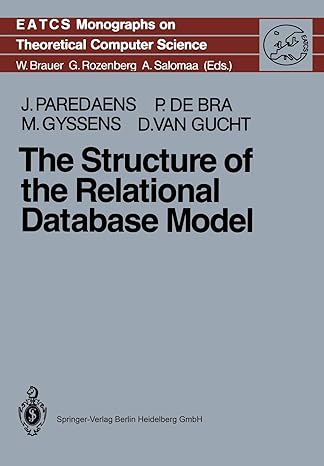Question
from __future__ import annotations from typing import Any, List, Optional class _Node: A node in a linked list. Note that this is considered a private
from __future__ import annotations from typing import Any, List, Optional
class _Node: """A node in a linked list.
Note that this is considered a "private class", one which is only meant to be used in this module by the LinkedList class, but not by client code.
=== Attributes === item: The data stored in this node. next: The next node in the list, or None if there are no more nodes. """ item: Any next: Optional[_Node]
def __init__(self, item: Any) -> None: """Initialize a new node storing
class LinkedList: """A linked list implementation of the List ADT. """ # === Private Attributes === # _first: # The first node in the linked list, or None if the list is empty. _first: Optional[_Node]
def __init__(self) -> None: """Initialize a new empty linked list containing the given items. """ self._first = None
# ------------------------------------------------------------------------ # Methods from lecture/readings # ------------------------------------------------------------------------ def is_empty(self) -> bool: """Return whether this linked list is empty.
# >>> LinkedList([]).is_empty() # True # >>> LinkedList([1, 2, 3]).is_empty() # False """ return self._first is None
def __str__(self) -> str: """Return a string representation of this list in the form '[item1 -> item2 -> ... -> item-n]'.
# >>> str(LinkedList([1, 2, 3])) # '[1 -> 2 -> 3]' # >>> str(LinkedList([])) # '[]' """ items = [] curr = self._first while curr is not None: items.append(str(curr.item)) curr = curr.next return '[' + ' -> '.join(items) + ']'
def __getitem__(self, index: int) -> Any: """Return the item at position
Raise IndexError if
while curr is not None and curr_index < index: curr = curr.next curr_index += 1
assert curr is None or curr_index == index
if curr is None: raise IndexError else: return curr.item
def insert(self, index: int, item: Any) -> None: """Insert a the given item at the given index in this list.
Raise IndexError if index > len(self) or index < 0. Note that adding to the end of the list is okay.
# >>> lst = LinkedList([1, 2, 10, 200]) # >>> lst.insert(2, 300) # >>> str(lst) # '[1 -> 2 -> 300 -> 10 -> 200]' # >>> lst.insert(5, -1) # >>> str(lst) # '[1 -> 2 -> 300 -> 10 -> 200 -> -1]' # >>> lst.insert(100, 2) # Traceback (most recent call last): # IndexError """ # Create new node containing the item new_node = _Node(item)
if index == 0: self._first, new_node.next = new_node, self._first else: # Iterate to (index-1)-th node. curr = self._first curr_index = 0 while curr is not None and curr_index < index - 1: curr = curr.next curr_index += 1
if curr is None: raise IndexError else: # Update links to insert new node curr.next, new_node.next = new_node, curr.next
# ------------------------------------------------------------------------ # Lab Task 1 # ------------------------------------------------------------------------ # TODO: implement this method def __len__(self) -> int: """Return the number of elements in this list.
# >>> lst = LinkedList([]) # >>> len(lst) # Equivalent to lst.__len__() # 0 # >>> lst = LinkedList([1, 2, 3]) # >>> len(lst) # 3 """ pass
# TODO: implement this method def count(self, item: Any) -> int: """Return the number of times
Use == to compare items.
# >>> lst = LinkedList([1, 2, 1, 3, 2, 1]) # >>> lst.count(1) # 3 # >>> lst.count(2) # 2 # >>> lst.count(3) # 1 """ pass
# TODO: implement this method def index(self, item: Any) -> int: """Return the index of the first occurrence of
Raise ValueError if the
Use == to compare items.
# >>> lst = LinkedList([1, 2, 1, 3, 2, 1]) # >>> lst.index(1) # 0 # >>> lst.index(3) # 3 # >>> lst.index(148) # Traceback (most recent call last): # ValueError """ pass
# TODO: implement this method def __setitem__(self, index: int, item: Any) -> None: """Store item at position
Raise IndexError if index >= len(self).
# >>> lst = LinkedList([1, 2, 3]) # >>> lst[0] = 100 # Equivalent to lst.__setitem__(0, 100) # >>> lst[1] = 200 # >>> lst[2] = 300 # >>> str(lst) # '[100 -> 200 -> 300]' """ pass
if __name__ == '__main__': # import python_ta # python_ta.check_all() import doctest doctest.testmod()
Step by Step Solution
There are 3 Steps involved in it
Step: 1

Get Instant Access to Expert-Tailored Solutions
See step-by-step solutions with expert insights and AI powered tools for academic success
Step: 2

Step: 3

Ace Your Homework with AI
Get the answers you need in no time with our AI-driven, step-by-step assistance
Get Started


